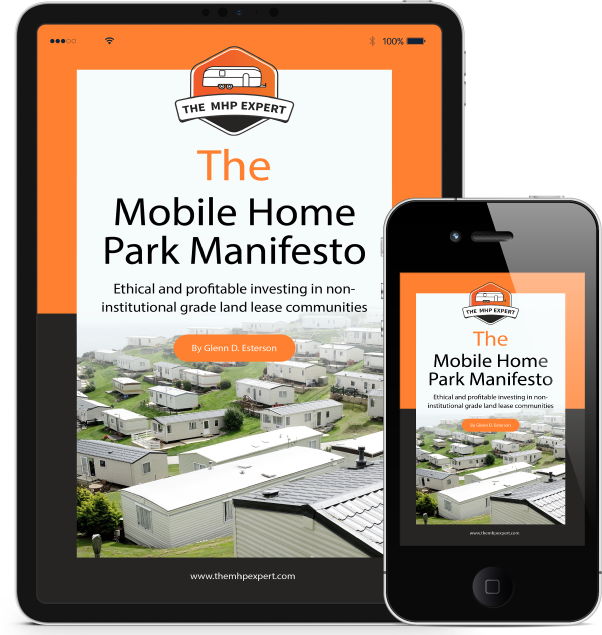In the world of mobile home park investing, underwriting remains an enigma for many, particularly those new to the industry or transitioning from other real estate sectors. Despite its complexities, underwriting is the lynchpin to success in the mobile home park realm. In this blog post, we will demystify underwriting, highlighting its significance and offering insights on how to excel at this crucial aspect of the investment process.
Underwriting involves a comprehensive review of financial data, meticulously analyzing various metrics to determine the viability of a potential investment. It is far from a simple arithmetic equation; underwriting requires a thorough understanding of the seller’s position, the buyer’s estimated position, and the possible value-add scenarios. By delving into the intricacies of underwriting, investors can uncover valuable insights, allowing them to make informed decisions and ultimately achieve success in the mobile home park industry.
Stay tuned as we explore the world of underwriting in the mobile home park industry, discussing its importance, the key factors to consider, and how to approach this critical aspect of investing with confidence and skill.
Key considerations for underwriting
As a critical aspect of the mobile home park industry, underwriting requires an understanding of various factors to make informed decisions. Here, we will discuss key considerations, including market analysis, financial analysis, and operational analysis, for successful underwriting in the mobile home park industry.
Market Analysis: A thorough market analysis is essential for understanding the local economy, competition, and potential growth opportunities. By researching the area, including local amenities, demographic trends, and future developments, investors can gauge the park’s potential for success.
Financial Analysis: Comprehensive financial analysis involves evaluating a park’s income and expenses to determine its profitability. This includes examining the seller’s historical performance, rent roll, and expenses, as well as creating pro forma scenarios to assess the potential return on investment. A meticulous financial analysis enables investors to identify the true value of a mobile home park and make informed decisions.
Operational Analysis: Evaluating the park’s operational efficiency is crucial to determining its potential for long-term success. This entails assessing management practices, maintenance plans, and utility setup, among other factors. An effective operational analysis can reveal areas for improvement that can enhance a park’s overall performance and value.
In conclusion, a comprehensive understanding of the market, financial stability, and operational efficiency is vital for making informed underwriting decisions. By considering these factors, investors can confidently navigate the complexities of underwriting in the mobile home park industry and maximize their chances of success.
Best practices
To ensure successful underwriting in the mobile home park industry, it is crucial to follow several best practices. These include:
Thorough market research: Conduct in-depth market research to understand the local area, competition, and demographics. This information will help you determine the park’s potential value and identify opportunities for growth.
Financial analysis: Perform a detailed financial analysis of the property, including a review of the rent roll, income and expense statements, and historical financial performance. This will help you determine the park’s profitability and identify areas for improvement.
Operational analysis: Assess the park’s infrastructure, utility systems, and overall condition to identify any potential issues that may affect its value or operational efficiency.
Separate lot rent and POH rent: It’s crucial to separate the income from lot rent and park-owned home (POH) rent to accurately evaluate the property’s value. This practice helps avoid common mistakes made by brokers and provides a clear picture of the park’s financial performance.
Establish realistic expense ratios: To create an accurate representation of the park’s expenses, research local market rates and industry averages, and obtain quotes from third-party providers. This will help you understand the true cost of operating the park and ensure your underwriting is as accurate as possible.
Adjust cap rates and GRMs: Fine-tune the capitalization rates and gross rent multipliers based on the park’s unique characteristics, such as its location, condition, and age of homes. This will help you determine a fair market value for the property.
Consult experienced professionals: Underwriting in the mobile home park industry is an art, and having a team of experienced professionals can make a significant difference in the success of your underwriting process. Work with trusted mortgage brokers, appraisers, and consultants to gain valuable insights and validate your assumptions.
By following these best practices, you can ensure a successful underwriting process and make informed decisions about the value and potential of a mobile home park investment.

